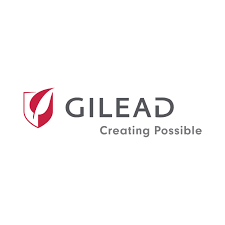FOSTER CITY, Calif.– Gilead Sciences, Inc. (Nasdaq: GILD) today announced the upcoming presentation of new data from the company’s HIV and COVID-19 research and development programs at the 29th Conference on Retroviruses and Opportunistic Infections (virtual CROI 2022) taking place from February 12-16. The data reflect Gilead’s enduring dedication to advancing global health through scientific innovation by addressing some of the world’s most challenging viruses. Gilead’s commitment to inclusive research facilitates the discovery and development of person-centered therapeutic options that address the evolving needs of a broad range of individuals.
“The HIV and COVID-19 pandemics continue to challenge the global community, requiring unprecedented coordination and collaboration of scientists, industry and community partners to accelerate antiviral research and development. At Gilead, we will keep applying our long-standing expertise in virology to bring forward person-centered innovation to help fulfill these urgent global needs,” said Frank Duff, MD, Senior Vice President, Virology Therapeutic Area Head, Gilead Sciences. “We are pleased to present our latest data at CROI 2022 from across our research and development programs, as we work to advance therapies to help different populations impacted by COVID-19 and HIV.”
HIV Research
Gilead is committed to continued scientific innovation to provide solutions for the evolving needs of people affected by HIV around the world, with the goal of ending the HIV epidemic for everyone, everywhere. At CROI 2022, Gilead will share new findings on HIV treatment and prevention strategies, as well as the latest updates from the company’s continued pursuit of an HIV cure.
HIV treatment research and development data include one-year results from the CALIBRATE and CAPELLA trials evaluating the efficacy and virologic suppression, in combination with other antiretrovirals, of investigational lenacapavir in treatment-naïve and heavily treatment-experienced people with multi-drug resistant HIV. Lenacapavir is Gilead’s potential first-in-class, long-acting HIV-1 capsid inhibitor in development for the treatment and prevention of HIV-1 infection. If approved, lenacapavir would be the only HIV-1 treatment option administered twice yearly.
The five-year cumulative outcomes of two Phase 3 trials (Study 1489 and Study 1490), evaluating Biktarvy® (bictegravir 50 mg/emtricitabine 200 mg/tenofovir alafenamide 25 mg tablets, B/F/TAF) in treatment-naïve people living with HIV (PLWH) will also be presented. These results demonstrate Biktarvy’s long-term safety and tolerability profile, and sustained efficacy with a high barrier to resistance in participants who initiated treatment with the guidelines-recommended, once-daily, single-tablet regimen.
Data presented from Gilead’s cure research program uncover insights to further the collective scientific knowledge on potential pathways to achieve a functional cure or long-term viral remission in the absence of antiretroviral therapy for PLWH.
Additionally, at CROI 2022, Gilead will present new prevention research using data from the DISCOVER trial to evaluate the performance of different recency assays to calculate the background HIV incidence, or how many new HIV infections are occurring in a region. Recency assays have been proposed as the primary methodology to evaluate the efficacy of novel PrEP agents in next-generation PrEP clinical trials.
COVID-19 Research
Gilead will present data that support the role of Veklury® (remdesivir) in addressing the needs of adult and pediatric patients, both hospitalized and non-hospitalized, with COVID-19. New interim results will be presented from an ongoing Phase 2/3 trial evaluating the safety, tolerability and pharmacokinetics of Veklury in children hospitalized with COVID-19.
In addition, Gilead will present the Phase 3 PINETREE data investigating a three-day course of Veklury IV treatment for non-hospitalized patients with mild-to-moderate COVID-19 at high risk of disease progression. This research led to the recent FDA approval for use of Veklury in non-hospitalized patients and updated National Institutes of Health (NIH) Treatment Guidelines for COVID-19 recommending use of Veklury in appropriate outpatient settings. These updates come amidst a surge of COVID-19 cases and the reduced susceptibility to several anti-SARS-CoV-2 monoclonal antibodies (mAbs) due to the Omicron variant. In contrast, Veklury targets the highly conserved viral RNA polymerase, thereby retaining activity against existing SARS-CoV-2 variants of concern in vitro. Laboratory testing shows that Veklury retains activity against the Omicron variant.


